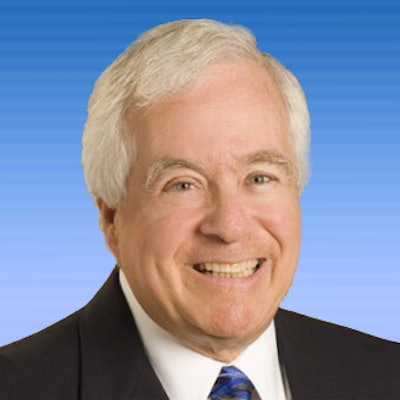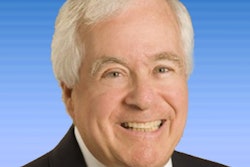
Most dentists are familiar with the concept of the dental service organization (DSO). There are quite a few dentists who were mini-DSO originators many years ago when the DSO was not yet given a name. These were dentists who may have operated solo practices or partnerships and then expanded into multiple practices. These were owned by one or two dentists who were able to receive special treatment and pricing discounts from their suppliers. They also obtained equipment at discounted costs from sellers because of the volume of purchases that they made. Management remained in-house for almost all the decision-making processes regarding personnel, tax strategies, and the like. These dentists had enough resources to adequately capitalize their mini-DSO and continued making progress through the years on a gradual basis.
Today, this type of multipractice ownership with a management company is called the DSO. It may have been originated by a few dentists with solid financial and management credentials. Fast forward to the 21st century, and the DSO or IDSO goes about things much more quickly and professionally.
Steps taken to start the DSO
There is an adage that asks, "Which came first: the chicken or the egg?" This resembles the question of which comes first for the DSO, the capitalization or the employment of key personnel as well as the certified public accountant (CPA) and legal team?
 Bruce Bryen, CPA, CVA.
Bruce Bryen, CPA, CVA.Money is needed for a successful DSO. Planning is a critical juncture where the right people will allow the DSO to raise capital on equity participations with venture capitalists, investment bankers, or hedge fund operators. Everything needs to be in place for the initial influx of funds from outsiders. Time must be taken to format the organization and to employ experienced personnel. The organization chart is something that should be addressed quickly, and it should be completed with the appropriate job descriptions included. The initial capital raised by the founders of the DSO will be used to hire the key employees, such as the chief financial officer (CFO) and the legal and accounting team. The dental founders will know how to hire professional dentists and hygienists since they have probably done so for their own offices.
Finding the right CFO and legal and accounting team may be more difficult for those without financial experience. It is important not to look at the CFO as an office manager. This person should be experienced in management and accounting and have some banking knowledge. If the current CPA for the dentists is not a dental CPA, then it is important to retain one quickly so that the DSO operating process can begin.
The organizational format
The organizational format such as a limited liability partnership (LLP), corporation, or other type of business entity is something that will assist in putting the DSO in a position where it has a less complicated and more understandable reporting system. It will help to attract investors as well as dentist/employees who will want to become future partners. The capitalization is a primary issue and the dental CPA and legal team will be able to assist in offering the right advice for the start of the DSO. The original operating or shareholders agreement should also be in effect prior to beginning the operation. Lines of credit and personal investment from the founding dentists should be reviewed at length so that the DSO does not have credit problems with suppliers or problems with the payment of wages to its employees. Reputations once hurt from poor payment terms are hard to rebound.
The CFO and the CPA will work together on budgeting and forecasting so that the owners are up to date with the goals and results of operations. A potential investor should not be kept waiting to see a financial report or a projection into the future. Planning for taxes as a dental practice owner is typically done with the goal of having the reportable income reduced as much as possible to keep the income tax bill as small as it can be.
When starting a DSO and projecting for a future investor, the opposite strategy is often used since investors like to see big profits, which result almost always in big taxes. The DSO founders and future dentist investors must remember to look at the big picture and remember that the DSO is the exit strategy as well as their current income source.
When the DSO goes out to find investors, the IDSO may be part of the next step in funding. The invisible investor is someone who wants a stake in the DSO but does not want to own it 100%. This type of investor wants the dentist to remain and work just as hard as he or she did prior to the cash investment.
Personnel and employee incentives
The CFO is not someone who is the billing clerk, the accounts payable person, purchasing, or other administrative employee. Each of these positions needs someone other than the CFO to do the appropriate work of its description. Of course, the DSO wants to be aware of overhead and to keep costs as low as possible, but the key employees should be in key positions and should be treated as such. When dentists are hired, they should receive competitive pay but should also receive a stock option or some similar opportunity to acquire an interest in the DSO at a price that may be below market. Incentive stock options allow this to occur. It keeps the employees employed and is a reward for staying. Other dental practices may offer a little more current compensation, but they probably do not offer an opportunity to be an owner of a multisite practice such as the DSO with the potential for a large payday in the future.
The dental CPA and attorney will assist with the explanation of how this is accomplished. This is why it is important to retain the professionals with an understanding of how the DSO works. Someone familiar with individually owned dental practices but not familiar with a DSO can cause a problem with the retention of dentists, the growth of the DSO, and the ultimate exit strategy for the founders and future partners.
Start right with the appropriate advisers and get the paperwork in order
Retaining the experienced advisers to assist with the format, legality, and planning of the DSO is a must. Once this is completed, adding and keeping personnel will be much easier than preparing acquisition agreements as things occur. The professionalism of the DSO has a cost that is expensive. The planning with the appropriate advisers and hiring of top-of-the-line personnel pays for itself when it is time to grow, hire, and ultimately retire. All of the planning leads to an exit strategy that is less stressed as the DSO becomes successful.
Bruce Bryen, CPA, CVA, is a certified public accountant and a certified valuation analyst with more than 45 years of experience. Learn more about him and his services.
The comments and observations expressed herein do not necessarily reflect the opinions of DrBicuspid.com, nor should they be construed as an endorsement or admonishment of any particular idea, vendor, or organization.



















